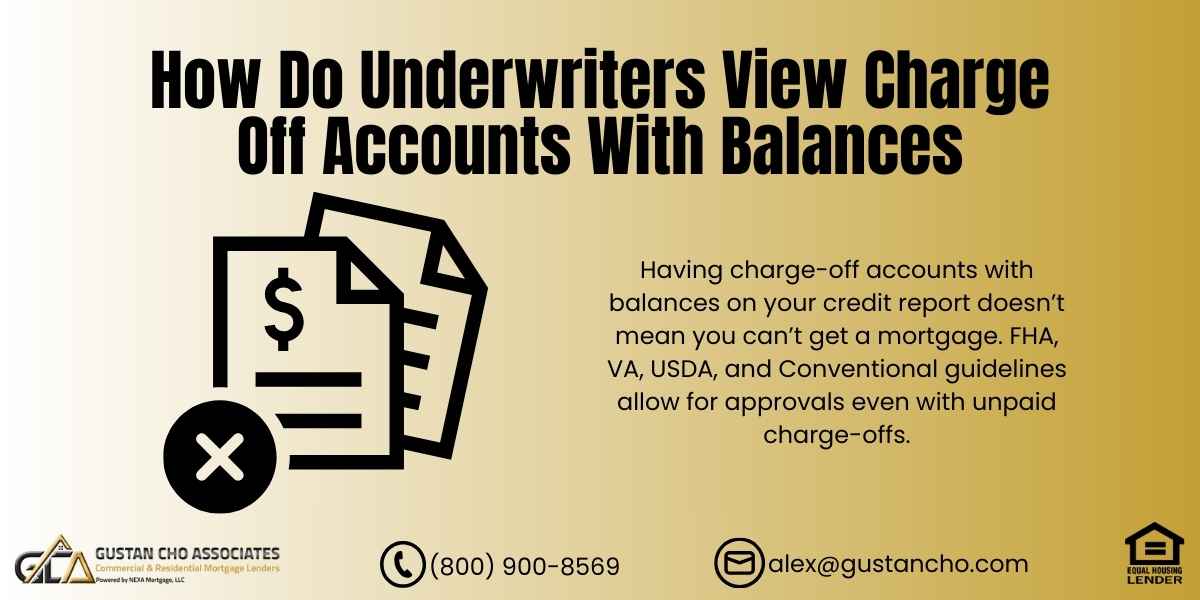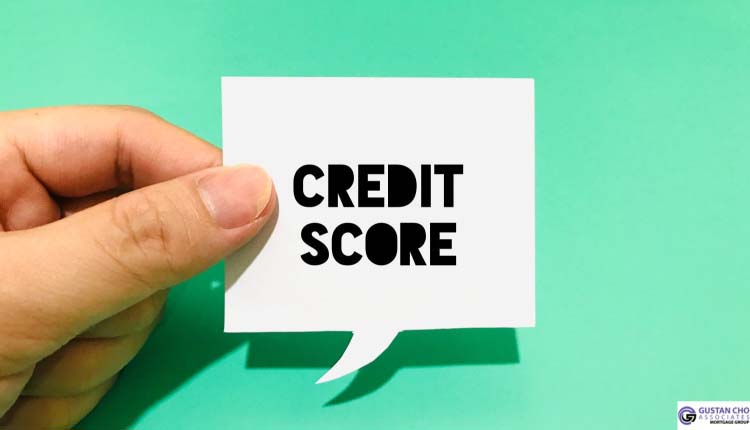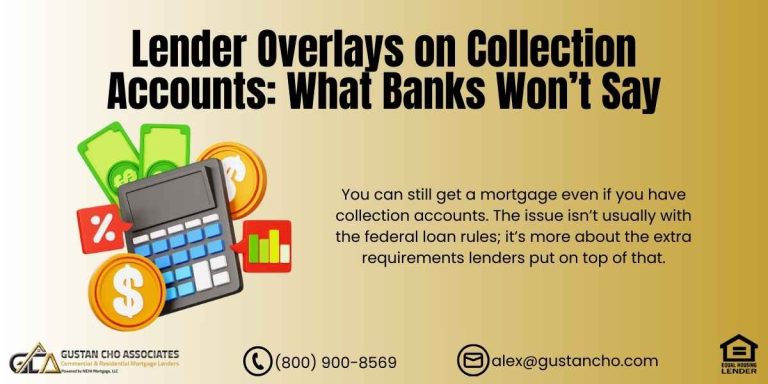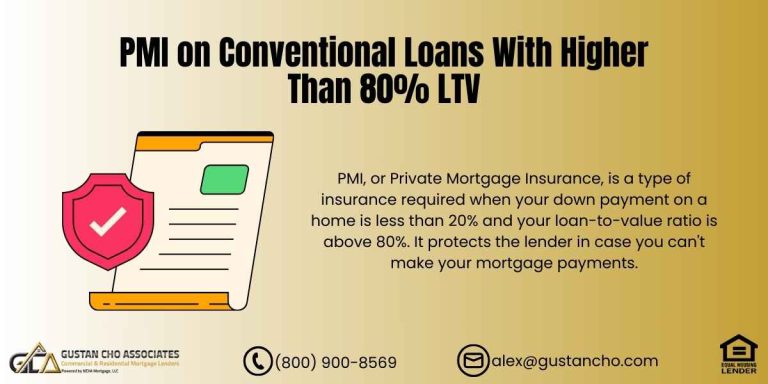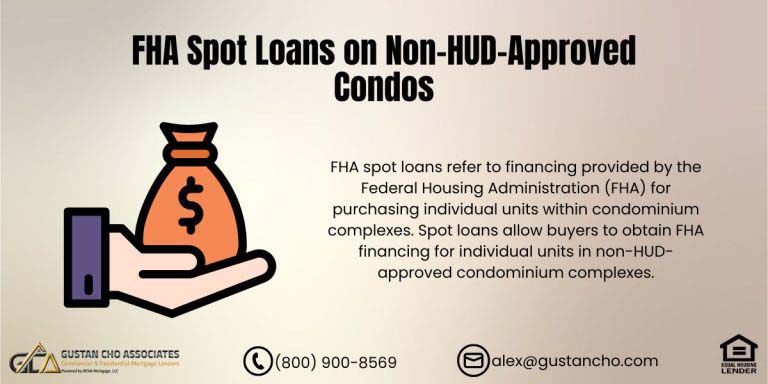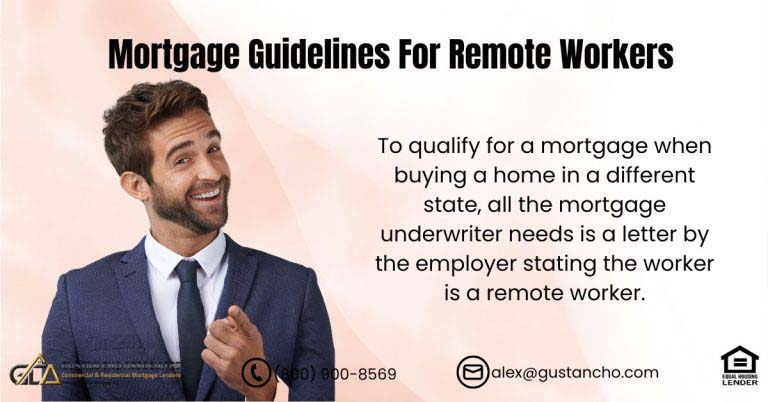At Gustan Cho Associates, we help borrowers nationwide get approved for FHA, VA, USDA, and Conventional mortgages—even if they have charge-off accounts with balances on their credit report. The rules are often misunderstood, and many loan officers apply stricter “overlays” not part of the official guidelines.This guide will walk you through everything you need to know about getting a mortgage with charge-off balances in 2025—what charge-offs mean, how lenders view them, the loan program differences, and how you can still get approved without paying them off.
What Are Charge-Off Accounts With Balances?
Worried About Charge-Off Accounts?
Learn how mortgage underwriters view charge-offs with balances and what it means for your approval.Do Charge-Off Balances Hurt My Credit Score?
Charge-offs represent one of the most detrimental negative marks on a credit report, with their impact being particularly severe when they are recent rather than older. Moreover, the severity of the drop in your credit score correlates with the balance amount, meaning higher balances can lead to a more significant decline. It’s important to note that charge-offs will remain on your credit report for seven years from the date of the first delinquency. But here’s the key: having charge-off balances does not automatically disqualify you from a mortgage. What matters most is the loan program you’re applying for and whether your lender applies strict overlays.FHA Loan Guidelines on Charge-Off Balances (2025 Update)
The Federal Housing Administration (FHA) has a reputation for being one of the more lenient programs regarding charge-offs. Notably, the FHA does not mandate that individuals pay off charge-offs with balances to qualify for a loan. Additionally, these charge-offs are not included in debt-to-income ratio (DTI) calculations, allowing for a more favorable assessment of an applicant’s financial situation. Similarly, medical collections are excluded from these calculations, further easing the path for potential borrowers. This means you can qualify for an FHA mortgage even if you have multiple charge-off accounts with balances. 💡 At Gustan Cho Associates, we recently assisted a borrower looking to secure a mortgage with charge-off balances totaling $20,000. Despite having a credit score of 600 and a steady W-2 income, they were approved through FHA automated underwriting, meaning no payoff was necessary.Conventional Loan Guidelines (Fannie Mae & Freddie Mac)
Conventional loans backed by Fannie Mae and Freddie Mac allow borrowers to qualify for a mortgage with charge-off balances. When purchasing a primary residence, it’s not necessary to pay off charge-offs, as automated underwriting systems like Desktop Underwriter (DU) for Fannie Mae and Loan Prospector (LP) for Freddie Mac may still grant approval even with unpaid charge-offs on your record. Additionally, having reserves or extra savings can enhance your chances of getting approved for a mortgage. ⚠️ Watch out: Many banks add overlays requiring charge-offs to be paid, even though the guidelines don’t require it. At Gustan Cho Associates, we follow agency rules—no overlays.VA and USDA Loan Guidelines
VA and USDA guidelines are a little stricter: VA Loans: When applying for VA loans, addressing any charge-offs on your credit report is crucial, particularly if they occurred recently. VA underwriters place significant emphasis on your payment history following a charge-off, as it can greatly influence your eligibility. Demonstrating a consistent record of on-time payments after such incidents can help strengthen your application. USDA Loans: USDA loans require that your credit history be relatively “clean,” meaning that any derogatory marks like charge-offs should not raise red flags. While older charge-offs may not heavily impact your application, recent charge-offs can severely hinder your chances of approval. It’s important to showcase a positive, recent payment history to mitigate the effects of any recent credit issues. Even with stricter rules, we’ve closed VA and USDA loans for borrowers with charge-offs when other lenders said no.Common Myth About a Mortgage With Charge-Off Balances
Many loan officers and banks spread misinformation: ❌ “You can’t qualify for a mortgage with charge-off accounts showing balances.” ❌ “You must settle or pay off charge-offs before applying.” The truth? ✅ All charge-offs will show balances on credit reports. ✅ That doesn’t mean you must pay them to qualify. ✅ FHA, VA, USDA, and Conventional loans allow approvals with unpaid charge-offs.Should You Pay Off Charge-Off Accounts Before Applying?
It depends on the loan type:- FHA Loans: With FHA loans, paying off an old charge-off is generally not required. In fact, making a payment can negatively impact your credit score temporarily, as it updates the “last activity date” on your credit report.
- Conventional Loans: Similar to FHA loans, conventional loans typically do not mandate paying off old charge-offs. It may be more beneficial to maintain savings for reserves, which can bolster your overall financial profile.
- VA & USDA Loans: The requirement to pay off charge-offs can vary on a case-by-case basis for VA and USDA loans. An underwriter may request repayment if the charge-offs are recent or significantly large, reflecting potential concerns over your creditworthiness.
Real-Life Example: Approved With $15,000 in Charge-Off Balances
 One of our borrowers had:
One of our borrowers had:
- Three credit card charge-offs ($15,000 total)
- A 590 credit score
- Steady job with W-2 income
Charge-Offs Don’t Always Mean Denial
Understand the rules lenders follow when reviewing charge-off accounts.How to Improve Your Chances of Approval With Charge-Off Balances
Even if you have charge-offs, you can take steps to strengthen your mortgage approval:- Pay all current accounts on time—new lates are worse than old charge-offs.
- Paying down your credit card balances can help raise your credit score.
- Show steady, reliable income.
- Avoid disputing charge-offs before applying—it can delay approval.
- Work with a no-overlay lender like Gustan Cho Associates.
Do Charge-Off Balances Count Toward Debt-to-Income Ratios?
One of the biggest fears borrowers have: “Will charge-off balances blow up my DTI ratio?”FHA Loans
If you’re considering getting an FHA loan, you’ll be glad to know that charge-off balances won’t hold you back. Unpaid debts aren’t included in your debt-to-income (DTI) ratio, which means a lot of borrowers can still qualify for a mortgage with charge-off balances on their credit report. So, even if you have some big charge-off amounts, it won’t stop you from getting that FHA mortgage.Conventional Loans
When it comes to conventional loans, the good news is that you generally won’t need to pay off charge-off balances if you’re purchasing a primary residence. This provides an excellent opportunity for borrowers to qualify for a mortgage with charge-off balances without the stress of settling old debts. It underscores the flexibility of conventional financing for those working to improve their financial situation.VA & USDA
When it comes to VA and USDA loans, how charge-off balances affect your debt-to-income (DTI) really depends on the underwriter’s take. Every situation is different, so some borrowers may still be able to get a mortgage even with charge-off balances. In contrast, others may face more digging into their finances. Just keep in mind that the underwriter has a big say in deciding whether you qualify for these loans. For many borrowers, this means you can still qualify for a mortgage even if your credit report shows large unpaid charge-off balances.Comparison of Loan Programs and Charge-Off Rules
| Loan Program | Do You Have to Pay Charge-Offs? | Counted in DTI? | Notes |
| FHA | No | No | Most lenient. Great option for borrowers with charge-offs. |
| Conventional | No (primary residence) | No | Reserves can help strengthen approval. |
| VA | Sometimes (case-by-case) | Sometimes | Recent charge-offs may need explanation or payoff. |
| USDA | Sometimes | Sometimes | Older charge-offs often pass underwriting. |
Final Thoughts: Don’t Let Charge-Off Balances Stop You From Buying a Home
Having charge-off balances doesn’t mean homeownership is out of reach. In 2025, FHA, VA, USDA, and Conventional guidelines still allow borrowers to qualify for a mortgage with charge-off balances.The toughest part is tracking down a lender who actually understands the rules and will not impose unnecessary conditions. That’s where Gustan Cho Associates comes in.We’re a national mortgage company licensed in 50 states. We specialize in helping borrowers with charge-offs, collections, low credit scores, and other challenges get approved when banks say no. Borrowers who need a five-star national mortgage company licensed in 50 states with no overlays and who are experts on mortgage with charge-off balances, please contact us at 800-900-8569, text us for a faster response, or email us at alex@gustancho.com.
Frequently Asked Questions About Mortgage with Charge-Off Balances:
Can I Really Get a Mortgage with Charge-Off Balances?
Yes. Many borrowers think they must pay off charge-offs first, but FHA, VA, USDA, and Conventional loans may approve you with unpaid charge-offs.
Do I Need to Pay Off Old Charge-Offs Before Applying for a Mortgage?
Not always. You usually don’t need to pay for FHA and conventional loans. However, VA and USDA may ask, depending on the situation.
Will Charge-Offs Stop Me from Buying a House?
No. You can still get a mortgage with charge-off balances if the rest of your credit and income meet the loan program guidelines.
Do Charge-Offs Count Against My Debt-to-Income Ratio?
Charge-offs do not count in your DTI for FHA and most Conventional loans. That means the balances won’t be added to your monthly debt load.
How Long do Charge-Offs Stay on My Credit Report?
Charge-offs usually stay for seven years from the date of your first missed payment. But you can still qualify for a mortgage with charge-off balances during that time.
Will Paying Off a Charge-Off Help Me Qualify Faster?
Sometimes yes, sometimes no. Paying off an old charge-off can initially lower your score because it updates the account. Always ask a lender before paying.
Can I Get a VA or USDA Mortgage with Charge-Off Balances?
Yes, but the rules are a little stricter. VA often needs a letter of explanation, while USDA may want older charge-offs.
What’s the Difference Between a Collection and a Charge-Off?
A collection is still being collected by a creditor or agency. A charge-off is debt the lender wrote off as a loss, but the balance still shows on your credit report.
Do All Lenders Allow a Mortgage with Charge-Off Balances?
No. Some banks add their own extra rules, called overlays. At Gustan Cho Associates, we follow only the agency guidelines—no overlays.
Who Can Help Me Get a Mortgage if I have Charge-Off Balances?
A no-overlay lender like Gustan Cho Associates can. We approve many borrowers for a mortgage with charge-off balances when other lenders say no.


